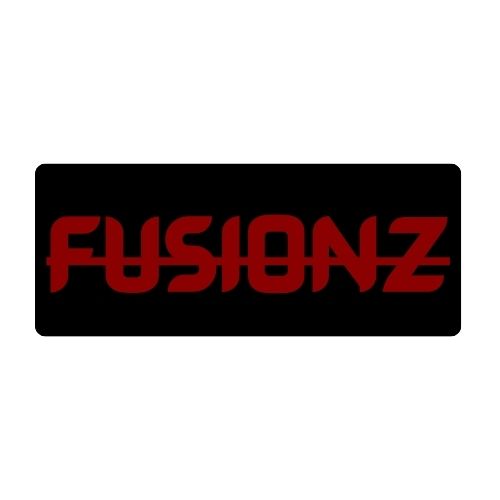Tin Tức
Understanding Auto Insurance for Dump Trucks
Auto insurance for dump trucks is a specialized area of vehicle insurance, designed to address the unique needs and risks associated with operating these large, heavy vehicles. Dump trucks, used primarily in construction, mining, and similar industries, carry loose materials such as sand, gravel, or demolition waste. Given their size and the nature of their cargo, these vehicles pose specific risks that differ significantly from ordinary cars or even other commercial trucks. This article will delve into the essentials of auto insurance for dump trucks, covering aspects such as coverage options, factors affecting premiums, claims processes, and tips for choosing the best policy.
Why Special Insurance for Dump Trucks?

Dump trucks differ from other vehicles in terms of their operational use and physical design. These differences significantly impact their insurance needs:
- Higher Liability Risks: Dump trucks often operate in busy construction sites and travel on public roads. Accidents involving a dump truck can lead to severe injuries or damages due to their size and weight. High liability coverage is crucial.
- Cargo-Related Risks: The type of materials dump trucks carry can be hazardous, potentially leading to spills or other damage during transport. Special cargo coverage can be necessary.
- Damage to Vehicle: Operating in rough terrain and harsh environments can lead to more frequent and severe vehicle damage. Comprehensive coverage for repairs or replacement is more critical than for lighter vehicles.
Types of Auto Insurance for Dump Trucks
When considering insurance for a dump truck, there are several types of coverage that businesses must consider:
- Liability Insurance: This is mandatory in most states and covers damage or injuries to third parties caused by your dump truck. This includes both bodily injury liability and property damage liability.
- Physical Damage Insurance: This covers damage to your dump truck. It includes:
- Collision Insurance: For damage from accidents with other vehicles or objects.
- Comprehensive Insurance: Covers damage from non-collision incidents, such as theft, vandalism, or natural disasters.
- Cargo Insurance: This protects against damage to the cargo being hauled, which is particularly important for dump trucks due to the nature of their loads.
- Medical Payments / Personal Injury Protection (PIP): This coverage is for medical expenses for the driver and passengers in the event of an accident.
- Uninsured/Underinsured Motorist Protection: This covers your expenses if another driver is at fault in an accident but does not have adequate insurance.
Factors Influencing Dump Truck Insurance Premiums

Insurance premiums for dump trucks are influenced by a range of factors:
- Vehicle Characteristics: The make, model, age, and condition of the dump truck can affect premiums. Newer, well-maintained trucks might cost more to insure but could be eligible for discounts due to enhanced safety features.
- Driver Profiles: The experience and driving records of drivers are critical factors. Drivers with clean records and commercial driving experience usually secure lower rates.
- Usage Details: How often and where the dump truck is used also impacts insurance costs. Trucks used in high-risk areas like busy construction sites might face higher premiums.
- Claims History: A history of claims can lead to higher premiums for dump truck insurance.
Managing and Reducing Insurance Costs
Managing insurance costs while maintaining adequate coverage is crucial for businesses that rely on dump trucks. Here are several strategies:
- Risk Assessment and Management: Implementing safety programs, regular vehicle maintenance, and driver training can mitigate risks and potentially reduce insurance premiums.
- Increase Deductibles: Opting for a higher deductible can lower your premium, but it’s important to ensure the deductible is affordable in case of a claim.
- Shop Around: Comparing quotes from multiple insurers can help find the most cost-effective coverage for your needs.
- Bundling Policies: Purchasing multiple policies from the same insurer (like liability, cargo, and vehicle coverage) can often provide discounts.
- Special Discounts: Ask insurers about discounts for things like anti-theft devices, GPS systems, or other safety equipment.
Navigating Claims with Auto Insurance for Dump Trucks

In the event of an accident or damage, the claims process for dump truck insurance typically follows these steps:
- Immediate Report: Notify your insurer as soon as an incident occurs. Prompt reporting helps to expedite the claims process.
- Documentation: Collect and provide all necessary documentation, including accident reports, photos of the scene and damage, and witness statements if available.
- Assessment: The insurance company will assess the damage, which might include sending an adjuster to evaluate the vehicle.
- Resolution: Once the claim is approved, the insurance company will provide funds for repairs, medical expenses, or other covered costs according to your policy.
Choosing the Right Insurance Provider
Selecting the right insurer for your dump truck is as crucial as choosing the appropriate coverage. Consider insurers with expertise in commercial vehicle insurance, particularly those experienced in handling dump truck policies. Assess their customer service, claims responsiveness, and financial stability before making a decision.
Conclusion
Auto insurance for dump trucks is a complex but essential requirement for businesses in industries like construction and mining. Understanding the nuances of different coverage options and how premiums are determined can help businesses make informed insurance decisions. By managing risks and meticulously selecting the right insurance provider and coverage, businesses can protect their assets while controlling costs.
